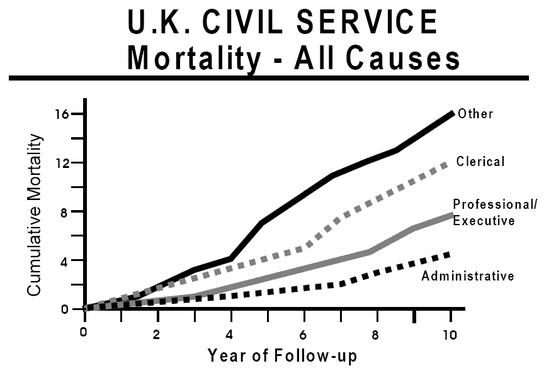I recently read an article that really annoyed me. It was called “Rebooting Social Science: The interdisciplinary Tobin Project addresses real-world problems.” I began to realize that I wouldn’t see eye to eye with this article when I got to the section that discussed the “real-world problem” of inequality. The section was titled “Interrogating Inequality.” Not “addressing” inequality. Interrogating. Shades of “doubt is our product,” as I’ll explain.
One of the scholars interviewed for this article characterized inequality as “the most contested of contemporary issues.” The evidence cited for said contestation was the lack of agreement on whether inequality contributed to the recent financial crisis. Some claim that it did. Others, however,
dismiss this argument, viewing rising inequality “as little more than a hiccup” or even celebrating it as “a favorable development … in the progress of American capitalism.”
As it turns out, the real issue being “contested” by these “social scientists” (economists, not sociologists) is not whether inequality exists or whether it’s just a hiccup or an inevitability of capitalism. No. (emphasis in the original)
The problem is, there is no consensus in the research on the consequences of inequality.
No consequences? What about childhood trauma, increased rates of disease, shorter lifespans, human dignity? Well, it turns out those things may affect individuals, but what these researchers are looking for are societal consequences. For example, is there a relationship between inequality and economic growth? Evidently, if we cannot detect a decrease in economic growth, there’s no reason to alleviate inequality. And it seems social scientists disagree among themselves about the quality of the evidence on that issue.
The article goes on to discuss the relationship between inequality and political outcomes. Greater inequality might create a demand for income redistribution. (Heaven forbid!) After three decades of contemplating the research,
the academic community remains divided regarding both its accuracy and the true nature of the effect (if any) of income inequality on political outcomes.
At least the article does acknowledge that, if there was a call for redistribution, such a policy would probably be thwarted by “asymmetrical political power for the top end of the distribution.” (That’s for sure.)
Health
And then we get to health.
The “evidence on a causal relationship” between income inequality and the health of the population as a whole “remains anything but clear.”
The key phrase here must surely be “population as a whole.” What this sentence appears to say is that, while the socially and economically disadvantaged (those on the low end of the social gradient) may be significantly less healthy, as long as those higher up the gradient are OK — leaving the “population as a whole” sufficiently healthy — we don’t need to concern ourselves with those lower down. And a healthier and longer lifespan for those who are socially and economically advantaged is precisely what the Whitehall Studies found.
(Here “administrative” refers to an employment grade higher than “professional/executive.”)
Perhaps, since the poor die at a younger age, they have less time to constitute the “population as a whole.”
Personal responsibility for shortening your lifespan
It is common (though it doesn’t come up in this article) to blame the poor for engaging in behaviors that put their health at risk. This allows conservative politicians to argue that we should not spend scarce health care resources on the poor, since their behavior will prevent an increase in measurable health benefits. (There’s also the argument that, if we improve the health of those who need medical services most intensively, they will undoubtedly live longer, which will entail costs that cancel out any savings from their improved health. See It’s cheaper to let the sick die.)
The thing is, we don’t know if health behaviors determine health. That is a matter of “vigorous debate,” as Daniel Goldberg points out. How could we possibly isolate the behavior from all the variables that may contribute to the behavior?
Goldberg makes an excellent point on this issue. There are significant social and economic conditions (“upstream macrosocial factors”) that influence health behavior. Regardless of whether there is a relationship between “risky” behavior and health, these upstream factors “play an enormous role” in the health of those at the low end of the social gradient.
[I]n a world where risky behaviors are important determinants of health, these upstream factors affect health and exacerbate inequalities in part through the mediation of health behaviors. In a world where risky behaviors exert only negligible effects on health, these upstream factors affect health and exacerbate inequalities through myriad pathways and factors other than health behaviors.
Either way, it doesn’t matter. You can’t simply blame the behavior.
More to come
Inequality, especially as it relates to health and the eagerness with which we blame the individual rather than “upstream factors,” is (clearly) one of my favorite topics. I ended up writing more than I’d anticipated, so I’ve divided what follows into five parts.
The next post, on an encouraging note, is on how we’re discovering the actual mechanisms that lead to poor health in disadvantaged children. Then an observation by Tony Judt. The final three parts offer some possible clues as to how and why we (Americans) came not to care about inequality. In the last of these posts I discuss the institution that published the article “Rebooting Social Science” and my relationship to that institution.
Related posts:
Interrogating inequality: Some good news
Interrogating inequality: Tony Judt
How we came not to care: Rosanvallon
How we came not to care: Historical trends
How we came not to care: Oligarchy of the elite
It’s cheaper to let the sick die
Life expectancy of the rich and the poor
The politics behind personal responsibility for health
Healthy lifestyles serve political interests
Why medicine is not a science and health care is not health
Image source: The Century Foundation
Resources:
Elizabeth Gudrais, Rebooting Social Science: The interdisciplinary Tobin Project addresses real-world problems, Harvard Magazine, July-August 2014
Daniel S. Goldberg, Social Justice, Health Inequalities and Methodological Individualism in US Health Promotion, Public Health Ethics, July 5, 2012




Sorry, comments are closed for this post.